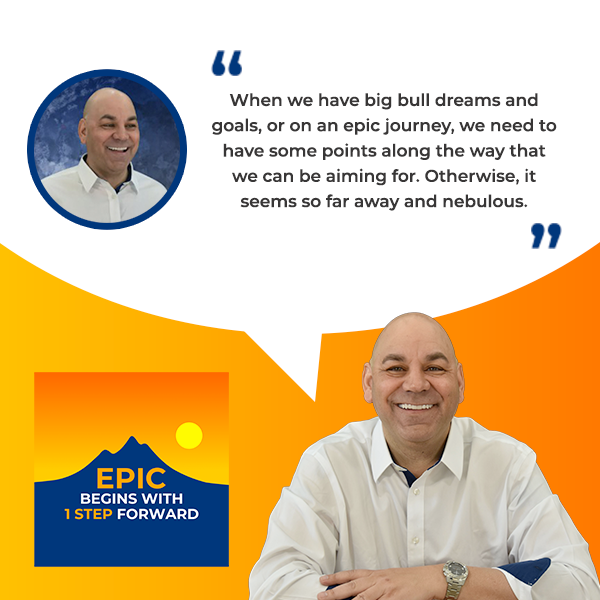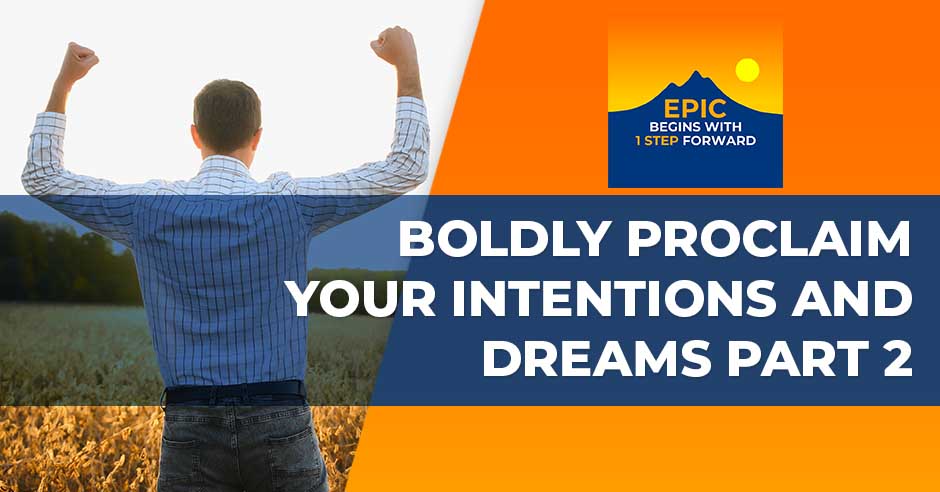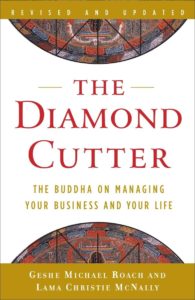In this podcast episode, Aurora Winter and Zander Sprague delve into Zander’s courageous journey of taking his speaking career to new heights during the challenging times of the 2020 pandemic. The discussion centers around the importance of boldly proclaiming one’s goals, visions, and dreams, emphasizing the need for specificity to avoid missing the mark. Zander shares his experiences, the challenges faced, and the tools like Descript that he utilizes to enhance his podcasting and speaking endeavors. The conversation explores the significance of structure, timelines, and the 97-3 rule, encouraging listeners to focus on the positive aspects of their efforts.
—
Listen to the podcast
Boldly Proclaim Your Intentions and Dreams Part 2
This is super important for people to yellow highlight because many people want a seven-figure business but they think, “Who am I? Maybe I’m asking for too much.” They settle on $500,000 or $250,000. They’re only asking for $250,000 so they only get $100,000. It’s not true that it’s easier to get $250,000 than $1 million.
It’s probably easier to get $1 million or build a $10 million business because it forces you to think bigger. The question is not, “How can I get it?” The question is, “How can I create ten times that value?” God, the universe, the unified field, or whatever word works best for the audience, because I know people who don’t like the word God but I’m okay with it, niggle and think, “I’ll ask for a penny.” Meanwhile, they could have asked for a castle.
We can stick with cars or clothes. Clothes are something that we all buy. Does the $20 pair of jeans that you might buy at Target cost any less to make than the $300 pair of jeans that you get from some high-end jeans place? The production value is probably pretty close. I’m talking about within probably $0.50 of what the cost is and yet the value of the $300 pair of jeans is seen as being more. We know that designer labels like Armani suits are $5,000.
They are worth more. We did this in my MBA. I’ll have to look up the exact data. It was related to wine. They studied the neurotransmitters, dopamine, and chemical reactions within people’s bodies when they were told that they were having a $200 bottle versus a $5 bottle. The pleasure that the $200 bottle gave was significantly more, even if it was the $5 bottle that was switched. There is value in it and an experience delivered at a premium level even if it only costs $0.50 more like Calvin Klein.
I read this book and it was a food psychologist. It was interesting because they went into this college cafeteria and had a sheet of brownies. They put 1 on a napkin, 1/3 on a paper plate, and 1/3 on a China plate. They labeled them as a free brownie, a brownie, and a gourmet brownie from the same sheet. The people who had the gourmet brownie rated it as being tastier and moist. That is exactly what you’re talking about. The perceived value is there. It’s like if we have big bold goals and the perceived value of our goal or dream is seen as being worthy.

Your perception is reality. I watched the movie Out for Blood in Silicon Valley. It was telling the story of that woman and her name escapes me. The good thing about Spoken Author is we get the general gist and then in the book, you can fill in the data that’s missing. She was so passionate and convinced that it was so important that people could have their blood test done with a drop of blood. She had a great story, although she crossed the line and was facing criminal charges. What is the value of a story that has a bold mission and a big vision to change the world? She raised $900 million. The value of a passionately proclaimed vision that’s purposeful and that will help people is about $900 million. Never mind a $1 million message. It’s a $900 million message.
There’s so much fun in going big and bold. There’s so much energy behind that that when you have those moments or perhaps you aren’t believing in yourself as much and the doubt starts to creep in. You frankly have so much momentum that it pushes you right past that. You’re a perfect example. You’re like, “Do I do this again?” The momentum of what you had set out as a goal pushed you to say, “Not only am I going to do that but I’m going to do this even bigger thing.”
What’s cool about my $100,000 in 100 days goal is it’s a short enough period to demonstrate something. I always like to invite entrepreneurs to have quick, fast, and short experiments. An experiment is not a success or failure. It’s a result. Faced with some proof and evidence that I did it once, I’m like, “I can do it again.” Who knows if I will or not but I am going to boldly proclaim that as my intention. Let’s ground this in a bit more data.
Startup Genome
I also want to share about this company called Startup Genome. Researchers from Stanford and UC Berkeley analyzed the growth of 650 startups in 2011. They found that those who had specific tangible goals who tracked and measured their results and metrics and who had mentors raised 7 times more money and had 3.5 times better growth. It’s another data point underscoring the value of a specific goal. They have clear goals and then track and measure their progress against those metrics.
Think about it, Aurora. If you can articulate what it is that you are doing, it’s easier for people to understand. I’m going to guess some of those startups were able to articulate and that’s what makes them successful. “I know what they’re selling. Therefore, I want to buy that.”
They have to be clear and concise. That’s for sure.
I worked in the startup realm and for some companies, which took me about ten minutes to explain what people were doing. “Here’s what this company does.” It wasn’t clear. Surprisingly, those companies didn’t succeed because people weren’t clear about what they were selling.
Goal Vs Intention Vs Dream
You have to have a clear and compelling message that’s concise and engaging emotionally, which means a story. What myths do you think are out there that trip people up around goals, intentions, and dreams? Do you want to draw a distinction between a goal, intention, and dream?
An intention is more of an idea. The goal is more of a specific, measurable, and tangible result. The dream is all of that plus the embracing of the unknown. “This idea is bigger than I can conceptualize but I have an inkling that it’s huge.”
An intention is more of an idea. A goal is more of a specific, measurable, and tangible result.
I like that. I want to confess that for myself. I know that goals are super useful. I do have goals. I write them down. I encourage my clients to have goals and write them down but I do have a little negative hook on goals because of past setting goals missing them. I have a little charge around that. I also like to invite people to have a massively transformative purpose.
I’m moved by Buckminster Fuller. When I have the star be a massively transformative purpose that will help others or change the world for the better, that seems to dissipate this idea that I have that I might set a goal and fail. I don’t know how that resonates with you but I do like the concept of the massively transformative purpose.
Goals are good because they are waypoints on the road that we can strive for to make the bigger destination more manageable. I’ll give an example. As a warning to everyone, I will be talking about my marathoning all the time because it’s important and incredibly transformative for me, that whole process of running marathons. I’ve run four in my life. 26.2 miles is a long way to go.
Goals are waypoints on the code that we strive for, making the bigger destination more manageable.
To mentally be able to get through that, I had waypoints. My first waypoint was 13.1 miles. Let me make it to the half marathon. Everything else is I’m counting down to where I need to go. The next one was mile 17. I only have single-digit numbers left, and then mile 20. I make it to mile 20. I only have 6.2 miles left. That’s a 10K. If I make it this far, I can make it. I get to count down each of the miles from 20 down up to 26 of finishing that goal.
When I did that, it took this very hard thinking, “How am I going to do it?” It made it so much easier because I had those waypoints. “I just need to make it here. I’ve made it there so I need to get here.” I get your stickiness around goals but when we have big, bold dreams and goals and we’re on an epic journey, we need to have some points along the way that we can aim for. Otherwise, it seems so far away and nebulous.
Enjoying The Journey
Bite by bite, you can eat the elephant. I want to share something about Jeff Bezos, who I believe is the richest man alive. We can take some advice about business from Jeff Bezos. I wrote about this in my book, Thought Leader Launch: 7 Ways to Make 7 Figures with Your Million-Dollar Message. I’m quoting from Bezos. He said, “Most decisions should probably be made with somewhere around 70% of the information that you wish that you had. If you wait for 90%, in most cases, you’re probably being slow. Either way, you need to be good at quickly recognizing and correcting bad decisions. If you’re good at course correcting, being wrong may be less costly than you think, whereas being slow is sure to be expensive.”
He summarizes these bullets. “Speed matters. Decide quickly. Understand that most decisions are reversible. Decide with 70% of the information that you wish you had. Disagree and commit. What if you’re wrong? Course correct.” I liked hearing about his wisdom. There is a cost to procrastinating and playing small or not deciding. When you’ve got 70% of the information, go for it and you may end up like Jeff Bezos, one of the richest men alive. How does that land with you, Zander?
That’s right. I will be the first to admit that I have no idea how I’m going to achieve all of this. I’ve got a semi roadmap but I also realize that there are going to be times in this journey that I’m on when it doesn’t go the way I think. I have some epiphany that puts me off in a different direction and that’s okay. It is the journey. The destination is great but we better enjoy the journey while we’re on it. We may look around, see something, and discover something in ourselves or our quest that is even better than us. I do agree that you have to sometimes jump off the cliff and believe in yourself that it is going to be okay.
Perceived Vision
As soon as you decided you were going to go for it and take your speaking career up a quantum leap in spite of the Coronavirus pandemic making it about the worst possible time to do so, immediately that same day, you texted me this idea about EPIC Begins With 1 Step Forward. That was a breakthrough but I don’t think that breakthrough would have come if you hadn’t decided.
Once you put things in motion, more things happen. It’s the same as me boldly proclaiming this $100,000 in 100 days in spite of the pandemic. Once I declared that, things started to be in motion. I see all kinds of opportunities to contribute and make a whole lot more than that. If I had been playing to survive rather than thrive, I wouldn’t have seen.
I am also driven. In case this is not obvious, I want to set an example to encourage others in my community. Many people are struggling and it’s one thing to encourage them but by example, if I can show, “I’m going forward, pedal to the metal. You’re going forward, Zander, pedal to the metal,” we’re not going to let pandemics stop us or other adversity. Life is full of adversity. It’s never perfect but we have to go anyway, rain or shine.
What comes to my mind is there was a book I read many years ago called The Diamond Cutter. It’s talking about Buddhism and the diamond industry. What was interesting about this whole book is you always take away one little nugget but the nugget I took away is that in Buddhism, there’s this concept that things aren’t inherently good or bad. It is how we interpret what is going on. In terms of what you and I are doing, Aurora, we recognize that the Coronavirus changes how we have to do stuff. Instead of going, “I can’t go book conferences or speak in front of 3,000 people I want to speak in front of,” I choose to look at it and say, “I have an opportunity to find a new way to do this.”
Look at you. You’re leaning into videos, editing videos, and Zoom.
It’s the Coronavirus situation. In and of itself, good or bad, it doesn’t matter. The sun is out for us. That’s a good thing but if we’re in the middle of a drought and I’m a farmer, that may not be a good thing.
Working On Your Ideas
The key is to deal with whatever way the river is flowing. Notice which way the current’s going, decide whether you’re going to paddle upstream or go with the flow, and resist whatever is not your best choice. Noticing what is, not denying what is. Is there anything further you’d like to share about how to boldly proclaim your intentions and dreams before we move on to some practical tips you have for the audience?
I do have a couple of simple things for people as a way to get the ball rolling. If you feel like you’re just at the beginning of this journey and you have this idea, write it down. It is amazing what happens when we write something down. It becomes tangible. It’s something we can see. If you feel that you’re more like, “Zander, I wrote it down but what do I do,” share it with friends and family. Let them know what you’re up to. Once you put it out there, people are going to ask. When you’re enthusiastic about it, people want to know. It’s infectious.
The more advanced step, and I alluded to it, is to ask others for help. I can’t make this goal without the help of Aurora and many other people, some of whom I don’t even know or haven’t met yet but are going to be helpful. I am not surprised but always delighted that when I ask for specific help, people are, by and large, happy to help out. People want to be helpful.
I want to be helpful to people. If I see someone and they’re looking at a map of a city and I know the city, I’ll stop and say, “Can I help you?” As a tourist, that’s sometimes helpful because I’m trying to get someplace and I’m looking at a map. I have no idea how to get there. I feel good about someone offering help. When I get to help someone, I feel good.

Intentions And Dreams: It is a good feeling to be offered help and offer someone help.
People are super helpful. I heard about this study at a train station. The experimenter had a research subject who was going to ask to borrow your cell phone, which is a precious device. You don’t want to give it to a stranger. It was raining. The control simply said, “May I borrow your cell phone?” The experiment said, “Too bad about the rain. May I borrow your cell phone?”
The incidence of giving the stranger the cell phone was 40% more with that one sentence of connection, “Too bad about the rain.” Connect first if you can indicate how your vision is going to help others and isn’t just like, “Can you lend me $100?” Even if you give the smallest reason why, it substantially increases the probability of people helping you.
I always like to ask people, “How can I help you? How can I serve? What problems have you got that I might be able to help you with?” That kind of attitude goes well. These are great points. 1) Write it down. 2) Share it with friends and family. 3) Ask others for help. I would add on the sharing with friends and family. You know who the wet blankets are in your friends and family. Don’t share with wet blankets.
Share with people who are full of enthusiasm and will support you. If you’re looking for approval, you may not get support, whereas if you boldly proclaim your intentions and dreams, you will. If you’re like, “Should I do this,” that may not deliver the results because your lack of confidence will not provide the results that you want. Notice where you’re sticking and tune in because we’ll have more things to help you.
Closing Words
We’re going to talk about what’s coming up next but before that, I want to let you know that we have more goodies for you to lean into this. You can go to ZanderSprague.com and get some great goodies including a PDF with some epic sayings that you’ll want to print out and put on your fridge, bathroom mirror, or perhaps car. Share it with friends. You can go to my website, ThoughtLeaderLaunch.com, and get your Thought Leader starter kit, which includes an eBook, an audiobook, and some video training about your million-dollar message.
Please do subscribe to both of those so that you get the value. Also, we want to let you know when Zander’s book is coming out so that you can get the early bird special on it. You can participate in the live streaming. We’ve got all kinds of goodies planned. We want to be sure to let you know about that. Subscribe. If you’d like to watch this rather than read it, check out our YouTube channel. Zander, what is coming up? Do you have anything further to add to that before we zip on this episode?
Outro
We’re good. Failure is part of the journey. It sounds negative but it isn’t. All of us understand that we don’t get it perfect but what do you do when it doesn’t go perfect?
That’s going to be great and useful. If you have any issues with failure, you will not want to miss the next episode. This is a wrap for the episode. Be sure to follow us and find out about Zander’s insights into failure being part of the journey, and also to find out what he’s going to do in the next episode. Do you have any big goals that you want to boldly proclaim?
The two videos that we have, I will have those edited. I will have the show also in the can be edited and ready to go.
Are you going to block off time in your calendar to do these things?
I am going to block off time in my calendar.
There you go. See, he walks his talk. We look forward to seeing you next time. Bye for now.
Important Links
- Thought Leader Launch: 7 Ways to Make 7 Figures with Your Million-Dollar Message
- The Diamond Cutter
- YouTube Channel – EPIC Begins With 1 Step Forward


